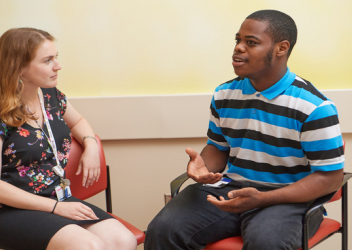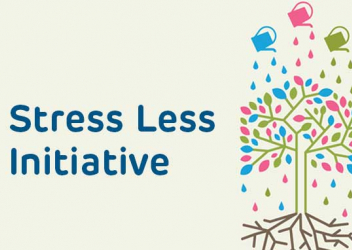Research In Action
Research In Action
Breadcrumb

Long before the COVID-19 pandemic, the Center for Pediatric Traumatic Stress (CPTS), co-located at Children’s Hospital of Philadelphia (CHOP) and Nemours Children's Health, recognized that healthcare professionals may be affected by the trauma and stressors affecting the children and families in their care. This specific trauma exposure is best described as secondary traumatic stress.
According to the National Child Traumatic Stress Network (NCTSN), secondary traumatic stress is defined as “the emotional duress that results when an individual hears about the firsthand trauma experiences of another.”
Healthcare professionals who work with patients and families, however, not only hear these traumas, but also become part of the story. For many, the trauma exposure experienced in their work can affect their physical health, mental health, and well-being.
The Prevalence of Secondary Traumatic Stress
Working with children and families in need of medical and emotional support and delivering evidence-based compassionate care can be meaningful and rewarding. However, the same personality traits that make healthcare professionals virtuous in their roles may make some more likely to experience distress.
Like many other essential workers, healthcare professionals were on the front lines of fighting the virus during the pandemic. Many found themselves personally affected by the trauma and loss that many families experienced and continue to experience all over the world. Acknowledging and understanding the prevalence of secondary traumatic stress, as well as ways to help prevent it, is more important than ever.
The Center for Pediatric Traumatic Stress recently developed a self-paced online course, Secondary Traumatic Stress for Healthcare Professionals, to add to its library of courses. Nurses can obtain free nursing professional continuing education contact hours by completing this course and the following other online courses offered:
- Pediatric Medical Traumatic Stress: An Introduction for Healthcare Professionals
- D Is for Distress: Helping Pediatric Patients With Pain, Fears, and Worries
- E Is for Emotional Support: Who and What Does Your Patient Need Now?
- F Is for Family: Remembering Family Stress and Coping
- For Healthcare Professionals: Pediatric Medical Traumatic Stress (PMTS) and Working With the Child Welfare System
In an ever-changing world, it is important that awareness and recognition of secondary traumatic stress is universally embedded into the culture of healthcare. Ensuring that healthcare professionals have the education and tools necessary to prevent and support themselves and their peers through difficult experiences results in best practices and safer care for children and their families.
For more information about secondary traumatic stress, visit HealthCareToolBox.org.




